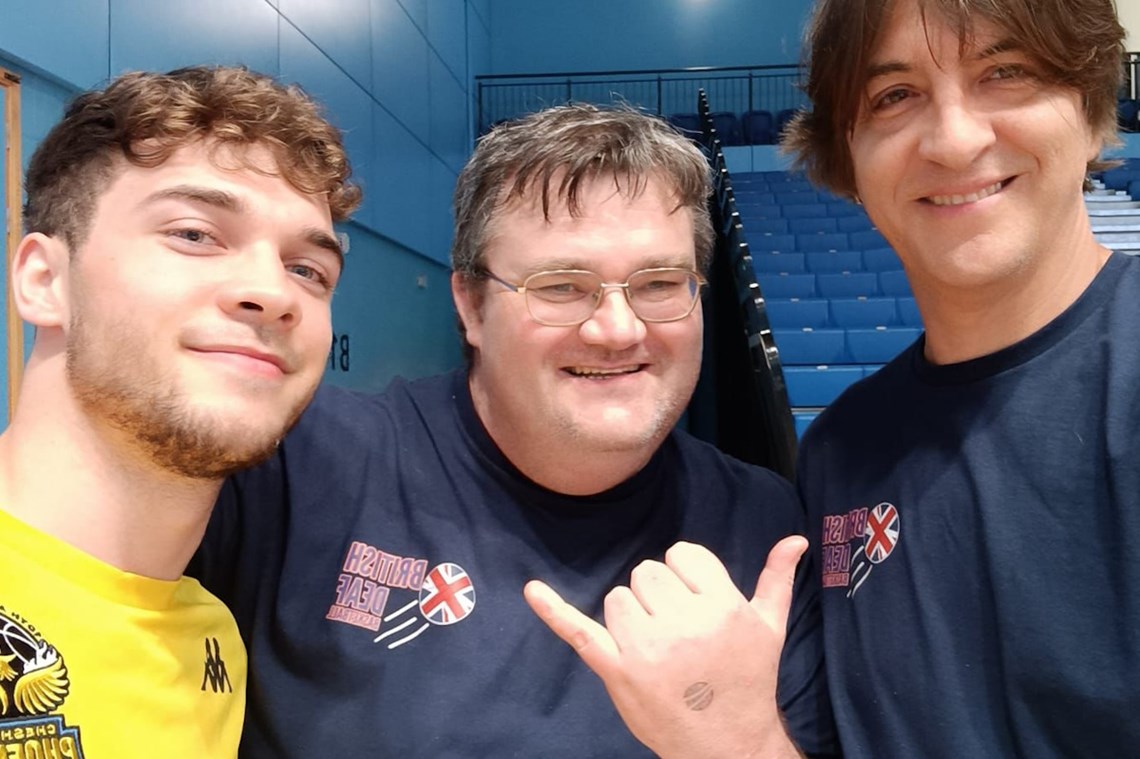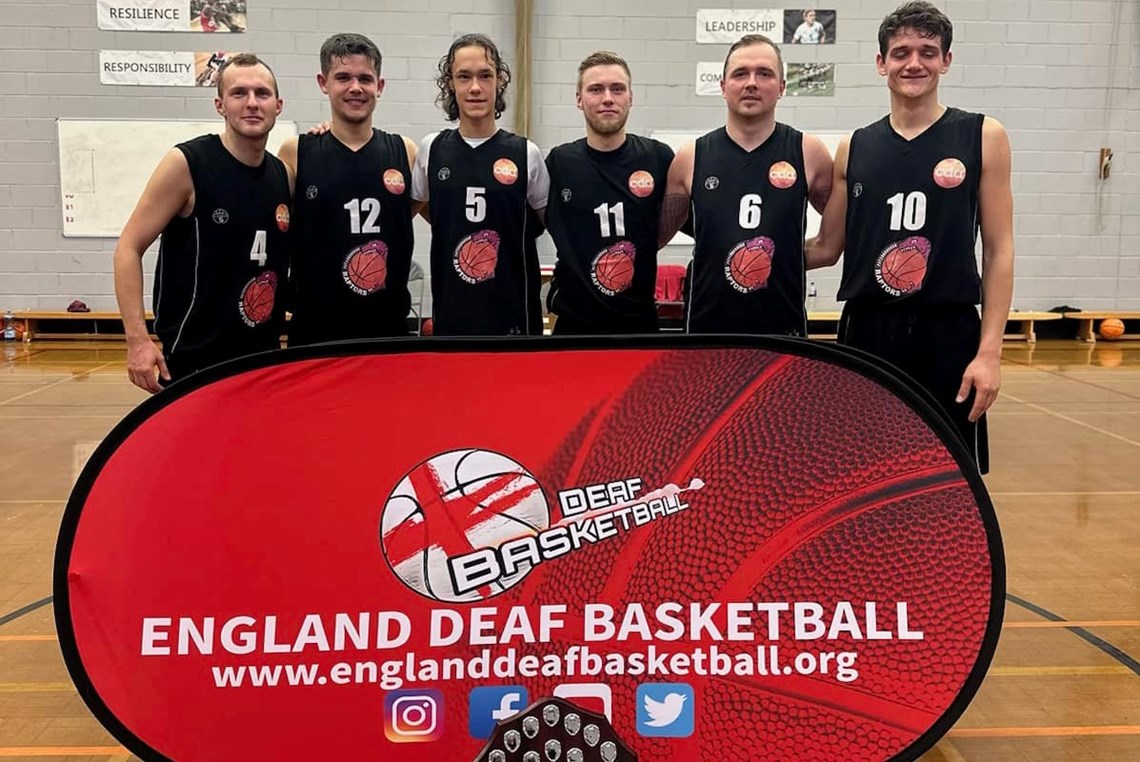
The news comes as the world celebrated International Day of Persons with Disabilities on 3 December, the United Nations day of observance to promote the rights and well-being of persons with disabilities in all spheres of society and development.
Taylor, who is a former GB deaf basketball player, having played in the Deaf International Basketball Federation’s first World Championship in Greece in 2002, helped launch the English governing body for deaf basketball in 2019.
“I got involved as secretary since they had no structure, constitution or bank account, everything was run by one guy volunteering his time,” he said.

Deaf and non-deaf players play practically the same game, with there being no major adaptations to the rules for deaf basketball.
In fact, deaf players can participate in the NBL, and the first to do so was Jamie Ross, who signed for the Doncaster Eagles in the 1998/99 season, playing in Division 3.
Irish international Robbie Graham was the only deaf basketball player in the BBL last season, playing for Cheshire Phoenix and is currently playing for St Vincent's Basketball Club in the Irish Super League. He is also eligible for the NBA Draft in 2024.
The only additional rules in deaf-only competitions are players aren’t allowed to play with hearing aids/devices, they must meet a hearing level of 55dBs in their stronger ear, and no one is allowed to talk during game play; not until a whistle is blown by the officials.
In 2020, the EDB launched the National Deaf Basketball League, with rules and regulations, allowing the league to be governed.
In the 2022/23 season, there were nearly 40 players spread across four teams and relative newcomers, Peterborough Raptors, enjoyed the spoils of victory, beating London Beard at the Nottingham Wildcats arena in April to take last season's title.
But Taylor says uptake for the new season has been low, with numbers halved, and one of the clubs folding because of player work commitments.
“Deaf basketball is struggling to keep going,” said Taylor. “We may have to close this season [early] due to low numbers and we do not know if we are able to increase the numbers for next season.
“We are considering using the 3x3 tournament format to keep basketball active for this season.
“The increases in the cost of living and increased prices have affected players' wallets, as we don't play home or away fixtures, like the NBL. We play a central venue league format, with four fixtures per weekend and everyone stays in one location, meaning an overnight stay is needed.
“If we had regular financial income from one of the Government organisations [eg via UK Deaf Sport], it would help a lot, as we need put on development camps and [pay for] coaches.”

Currently, UK Deaf Sport (UKDS) – a national disability sports charity that aims to encourage deaf people to participate, enjoy and excel at sport, of which the EDB is an associate member – is asking the UK Government to change its policy that excludes deaf athletes from accessing Olympic and Paralympic funding.
Deaf athletes compete in the Deaflympics, which happen one year after an Olympic and Paralympic Games. It is an entirely separate event and is sanctioned by the International Olympic Committee.
There is no Paralympic category for athletes who are only deaf, so unless they have another disability that classifies them as a Paralympic athlete, they cannot access UK Sport’s funding streams.
UKDS’ ‘Fair Play for Deaf Athletes’ campaign aims to put pressure on the Government to invest £3 million into deaf sport, supporting athletes, talent pathways, coaches, and other people in the support system over the next four years to send a ‘strong and competitive’ DeaflympicsGB Team to Tokyo in 2025.
Kathryn Halsey, information support manager at UKDS, says that the EDB is a valued member and is currently being supported to meet the Sports England Code of Sports Governance Tier 1 criteria, allowing it to seek other sources of funding to support their grassroots work, league and club competitions.
“Funding for deaf sport is limited across all levels of participation,” said Halsey.
“The Fair Play for Deaf Athletes campaign is asking the government to fund the DeaflympicsGB teams fairly as they do for the Olympic and Paralympic teams. Basketball is a sport within the Deaflympics and Luke is a member of the DeaflympicsGB Committee representing basketball.
If the campaign is successful, then deaf basketball teams would be funded to represent GB as part of the DeaflympicsGB team. The campaign also hopes to highlight the unfairness and limited funding across deaf sport.”
The last time a British basketball contingent attended the Deaflympics was GB Women in Rome, 2001, and before them GB Men represented in Denmark in 1997.
“The first Deaflympics was first held in Paris in 1924 and is older than the precursor to the Paralympics, the Stoke Mandeville Games, which started in 1948 and yet the Paralympics gets priority funding and deaf sports struggle. We have to rely on fundraising and that impacts athlete training and preparation,” added Taylor.
You can support the Fair Play for Deaf Athletes Campaign by signing UK Deaf Sport’s petition.
If you are interested in playing deaf basketball email England Deaf Basketball via the button below.
.
.
.
